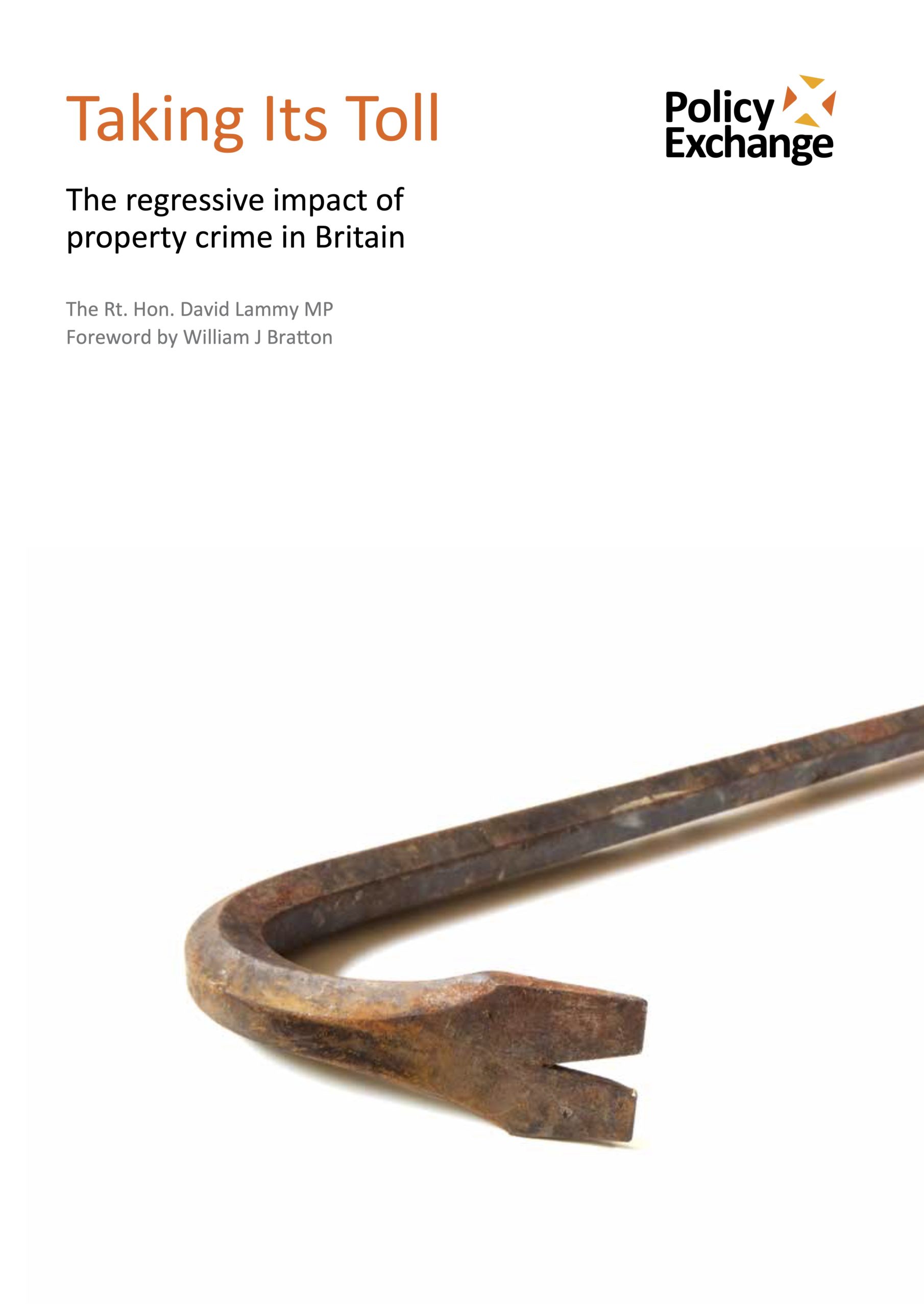
Taking Its Toll: The regressive impact of property crime in Britain
The police and the courts are turning a blind eye to theft, burglary and shoplifting which makes up three quarters of all recorded crime committed in England and Wales, according to the Rt Hon David Lammy MP, one of the Labour party’s leading Mayoral candidates.
Lammy, the MP for Tottenham and author of the report on property crime for Policy Exchange, says that, “There is a property crime pandemic sweeping Britain which is going largely unaddressed.”
The report highlights how large swathes of property crime goes unreported, especially among independent shopkeepers, with people having little faith in the ability of the police to bring the perpetrators to justice. A poll of 400 members of the National Federation of Retail Newsagents carried out as part of the research discovered that over half of all respondents had been the victim of two or more shoplifting incidents in the preceding three months yet over a third (35%) doubted the police’s ability to successfully prosecute shoplifters. Less than 1 in 10 incidents of shoplifting is reported to the police.
Other figures in the report emphasise the problem:
- Only two thirds of burglaries are reported to the police
- Half of burglary victims never hear back from the police after reporting a crime
- 19,000 incidents of bicycle theft were reported to the Metropolitan Police in 2013-14 yet only 666 (3.5%) of these thefts were solved
The paper also argues that shoplifting from smaller retailers such as newsagents has virtually been decriminalised in the eyes of the law. The Anti Social Behaviour, Crime and Policing Act 2014, set the threshold for a ‘serious’ shoplifting offence at good valued £200 or higher. Yet the median value of a shoplifting incident from a convenience store is around £40.
The paper also highlights how the courts are failing to tackle the problem of repeat offending:
- Half of all offenders sentenced for theft offences in the year to June 2014 had 15 or more previous convictions or cautions. This represents 62,000 offenders in one year alone
- 45 per cent of offenders cautioned for theft offences had already received a caution or conviction for a previous offence
- Half of all fines imposed by courts go unpaid
- The only recourse a magistrate has to address non-payment of fines is six months imprisonment
The report makes a series of recommendations to address property crime including:
- Restoring ward-level neighbourhood policing teams consisting of a sergeant, two constables and three Police Community Support Officers and ensure they focus their efforts on preventing and solving local property crime.
- Giving magistrates flexibility to enforce unpaid court fines through means other than six months imprisonment
- Implementing a penalties escalator for repeated theft. Courts should be able to break the caution-fine-reoffending cycle by increasing the sentence for reoffending.
- Making it compulsory for new police recruits to walk the same beat for at least a year – and preferably two years – after they complete training.
- Introducing New York Compstat-style data sharing between police forces to pinpoint crime trends and hotspots
- Establishing a Crime Prevention Academy to improve crime prevention expertise within police forces
Testimonials
“David Lammy’s paper intelligently explores many of the key issues around resourcing, prioritisation, and structure of policing in England and Wales, as well as the ways these relate to addressing property crime. He examines a cross-section of criminality in the UK, and offers some important recommendations for change aimed at reducing property crime in a period of constrained public resources.”
Bill Bratton, NYPD Police Commissioner
“In future years it’s possible that the Policy Exchange report will be seen as breaking new ground in our understanding of law and order issues.
“The link between low-level offending, that we almost brush aside as a run-of-the-mill occurrence, and the organised gangs behind it may well prompt police and crime commissioners to re-think policing priorities.”
Danny Shaw, BBC Home Affairs editor

